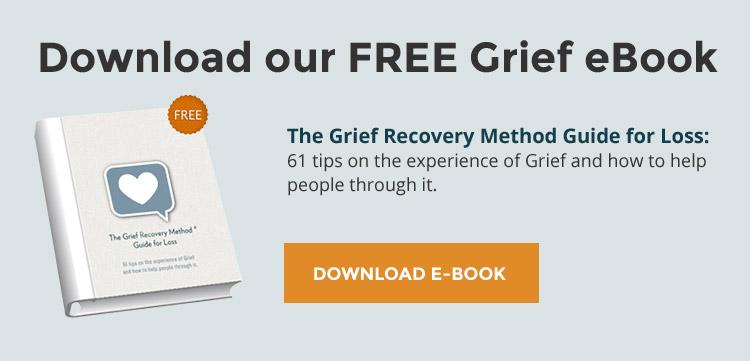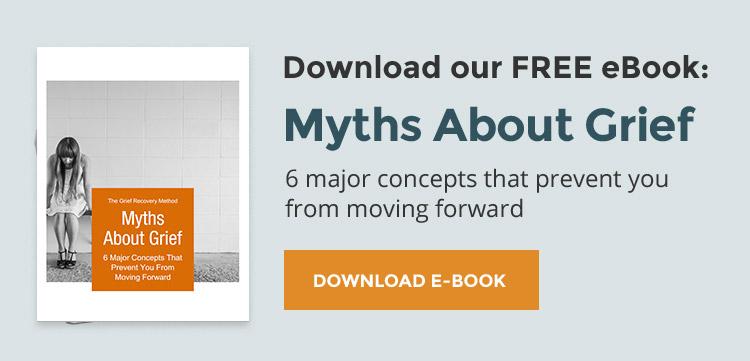One of the most common and separating elements of grief is the fact that the people around a grieving person tend to make comparisons in an attempt to help the griever feel better. The classic is, "Don't feel bad, she's in a better place." That may very well be true for the person who died, but is rarely the whole truth for the person who is still living - and grieving. In that example, the assumed emotional reality of a person who is no longer living is presented as a way of minimizing the sad emotions of the person who is still alive. The comparison of unlike feelings is confusing to the griever, even though it is intended to be soothing and helpful.

Much of how we deal with our emotional grief comes to us from the unfortunate lessons of comparison contained in the ditty that starts with, "I was unhappy about having no shoes until I met the man with no feet." If you use that as a metaphor you will discover that in any group of people, there could only be one griever - the person with the longest list of losses. If my mother died, but your mother and father died, and if his mother, father, and brother died...but you get the point. In theory, since only my mother died, I shouldn't feel so bad, because your mother AND father died. So your larger grief trumps my smaller one. Absurd...as we say, "My giraffe is smarter than your ham sandwich." We don't mean to be silly as a way of disrespecting anyone's grief - quite the opposite. We are being silly to make a point about comparing loss and how painful it might be when well-meaning friends make comments that they think will help, but windup hurting.
One of the more diabolical examples where comparison devastates the griever is when someone has experienced the death of a child. Almost inevitably they will get this question, "Do you have other children?" If their answer is yes, they soon learn that the question is often a preamble to the comment, "Don't feel bad, at least you have other children." Can you see the problem? The comment implies that the child who died is irrelevant and disposable because of the existence of the other child or children. Of course we know that's not what the person means when they say it, but the broken hearted parents hear the comment exactly as stated. Think about it, the first part of the comment was "Don't feel bad." What an odd instruction to someone whose child has just died. If there ever is a time when feeling bad makes sense, don't you think it might be upon the death of a child - or any other loved one for that matter? The bottom line is simple. All loss is experienced at 100%. There are no half grievers. That does not mean that all losses are equal or are perceived at the same level of emotional intensity. It just means that the emotional pain is unique to each griever and to the relationship they had with the person who died. It is not helpful to minimize people's grief with statements of comparison. Honor your friends and family members by allowing them to communicate the depth of their emotional reaction to their losses without any implication that they shouldn't feel as sad as they do.

If you found this article helpful, we suggest you visit our searchable Grief Blog library. Here are some suggestions:
Grief: Why comparing losses never helps and often hurts
Dont feel bad myth: Grief Myths Part 1

























Add new comment